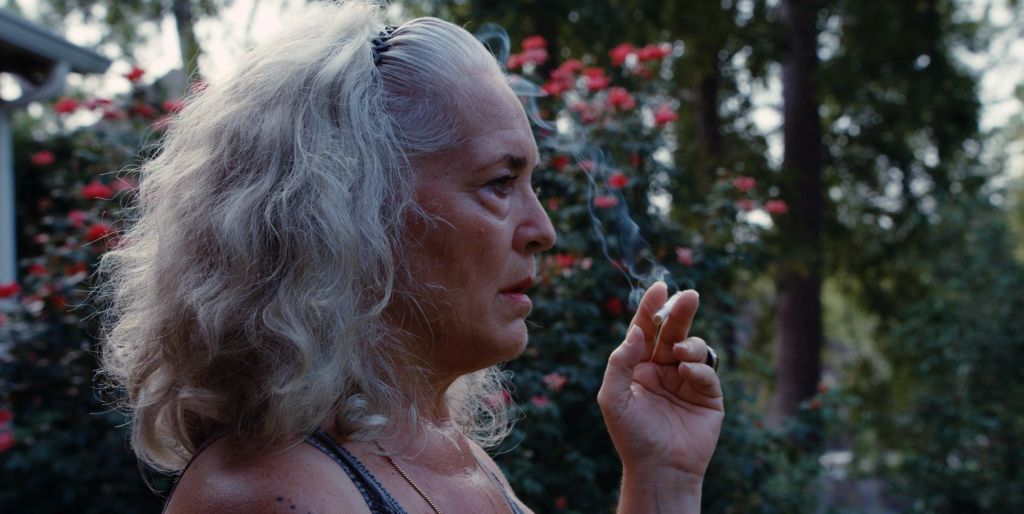6. Oslo, August 31st

Oslo, August 31st is one of the quieter films on this list. Requiem for a Dream is known for being ultra-stylish and in-your-face. Conversely, Oslo, August 31st is a much more reserved look at a similar subject. The soundtrack isn’t as fiery, the story isn’t as complex, and the editing isn’t as whacky.
In other words, this small Norwegian movie isn’t the best choice for people looking to find a movie as manic as Aronofsky’s. On the other hand, people looking for a movie that presents a similar kind of character study will find a lot to enjoy.
Oslo, August 31st tells the story of a recovering drug addict in an Oslo rehab clinic. He is given 24 hours to attend a job interview as part of his recovery process. The film takes place over the course of those 24 hours. It challenges viewers to ask themselves what it means to be an addict. Can rehab cure somebody entirely, or is recovery more than a simple twelve-step process?
Along with the questions regarding rehabilitation, the film also presents viewers with a complex character who deserves to be analyzed outside the subject of addiction. He’s not as “extreme” as any of Requiem’s four protagonists, but he’s still a perplexing character with his own set of flaws. Did something push him to be an addict? What is preventing him from seeking further help? Is he even capable of seeking further help? Oslo, August 31st insists that viewers ask complicated questions to fully appreciate it.
The more low-key approach isn’t for everyone. The movie’s deliberate pacing often feels miserably slow. Still, the snail-like movement of the plot always leads to something fascinating. It’s a rewarding movie even if it’s not consistently entertaining. Basically, it doesn’t offer the same kind of back-to-back thrills that Requiem for a Dream provides. Still, it manages to tell a similar story that encourages viewers to appreciate the film beyond its surface value.
7. Krisha

Last year’s Krisha was a critically acclaimed indie hit about a middle-aged woman struggling to maintain her mental health during her first family visit in years. After disconnecting from her family entirely, the titular character took time to get over addiction and mental health struggles.
The family visit at the film’s center seems to pave the way for a story of redemption. Krisha appears to be a movie about battling one’s demons and coming out on top, but looks can be deceiving. The movie is about battling demons, but the protagonist ultimately struggles to come out on top.
Several movies appear on this list due in large part to their melancholy nature. Krisha is no exception. Requiem for a Dream’s downbeat tone and gut-wrenching finale are among the film’s most talked about aspects. Krisha similarly stays fairly pessimistic throughout the short runtime.
This darker tone leads the way for a more fascinating character study. It would be one thing if the movie was completely devoted to watching a woman have pleasant interactions with her estranged family members. Luckily, like Aronofsky’s film, it encourages viewers to find and evaluate the protagonist’s most troubling flaws.
The primary difference between the two movies is that Krisha is about a recovering addict wishing to better herself as opposed to an addict who refuses to seek help. This film also puts a larger emphasis on the mental health aspects of the main character. The differences allow for a watching experience that feels both fresh and familiar. It hits a lot of the same notes as Requiem for a Dream, but it also provides viewers with a unique experience covering a similar subject.
8. Thirteen

Back before Evan Rachel Wood played an android on HBO’s Westworld, she played a 13 year old girl experimenting with drugs, alcohol, and sex. In theory, Thirteen should be a movie that resembles something found on MTV or Lifetime. Luckily, thanks to a tight script and some revelatory performances, filmgoers were gifted with a special kind of movie about dealing with inner demons at a notably young age.
This doesn’t mean that Thirteen completely avoids feeling overly melodramatic and hokey, but it does have plenty of moments that feel raw and gripping. The depictions of drug use aren’t nearly as whacky as what you would find in something like Requiem for a Dream or Trainspotting, but the protagonist’s relationship with illegal substances feels comfortably familiar in comparison to some of the higher profile drug movies. She tends to have an “everything is fine” attitude throughout most of the movie.
This seems to tie back into some of the previously mentioned themes. The movie never makes it seem like her choices could be fixed with a simple change of attitude though. It begs viewers to wonder what pushed her to make the choices.
Thirteen falters when it relies on tired clichés borrowed from better movies. The good news is that when everything meshes together perfectly, it’s one hell of a movie. It’s an emotional gut punch that features talented actresses doing what they do best. Its flaws are easy to spot, but they’re also easy to forgive. It will never be the go-to movie about experimenting with drugs and alcohol, but it rarely tries to be.
9. Amores Perros

Amore Perros has absolutely no drug use throughout the two-and-a-half hour runtime. Several movies on this list put a smaller emphasis on substance abuse, but this is the only movie that has nothing to do with the subject. It serves its purpose on this particular list in other ways. Structurally, it strongly resembles Requiem for a Dream. It also features a similar tone, as well as the same types of flawed characters that define the basis of this list.
Amores Perros is a melancholy movie about three different sets of characters. Each of these sets of characters are connected by a single car accident. The stories are also tied together through themes of loyalty and cruelty. The three overlapping stories couldn’t be more different in terms of plot, but the central ideas conveyed within the stories are what make the film a cohesive whole.
The anthology-esque setup combines with the darker tone to create a movie that feels equal parts Resevoir Dogs and Requiem for a Dream. Compared to Aronofsky’s movie, there’s a larger emphasis on violence. However, the depressing nature of the film combined with the deeply flawed characters seem more reminiscent of something like Requiem.
Obviously, considering the release date, one could assume that Amores Perros wasn’t directly influenced by the aforementioned movie, but the similarities are present regardless.
This specific film shows that drug use isn’t necessarily a prerequisite when it comes to finding movies similar to Requiem for a Dream. It has plenty to offer for people looking for a movie with a similar structure and attitude. As an added bonus, it’s also a phenomenal movie by itself.
10. Bully

Out of every movie on the list, Bully might feel like the biggest outlier. It’s definitely the movie that puts the least emphasis on addiction aside from Amores Perros. There is drug use in the movie, but it takes a backseat to a big murder conspiracy. For those that have seen Requiem for a Dream, it may seem like the two are hard to compare in terms of plot. That’s because the stories aren’t particularly similar. Instead, the comparisons come as a result of similar themes.
Like Requiem, Bully deals largely with the human condition. Why do people do the things they do? What makes them snap? The characters in Bully aren’t portrayed as downright villainous. They’re just teenagers trying to deal with the decisions they make every passing day. Each character has his or her own set of problems. It’s up to the audience to decide why these people behave the way they do.
Bully also deserves a spot on this list because it’s liable to leave viewers feeling utterly shattered by the time the credits roll. Requiem for a Dream features one of the most depressing conclusions in movie history. It doesn’t offer a traditional Hollywood ending where the underdogs redeem themselves. Neither does Bully. The protagonists never learn that oh-so-important life lesson. They just keep trudging along until the consequences come their way.
It’s one of the few movies on this list that can’t necessarily be defined as a “drug movie.” Still, it manages to earn comparisons in other ways. Film lovers looking for a movie that provides the same kind of Earth-shattering emotional resonance as Requiem for a Dream should find Bully satisfactory. It’s not quite as disturbing, but it hits almost as hard.
Author Bio: Justin is a paraprofessional teaching assistant and full-time film enthusiast with a degree in English. When he’s not writing about films, he’s probably watching them in his spare time.